NHS at 75: Can it survive the next 75 years?
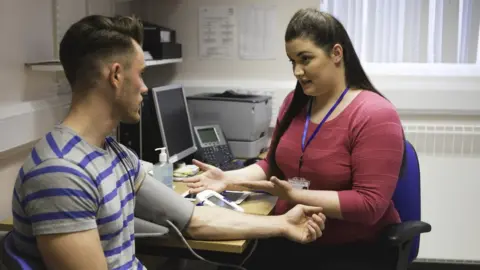 Getty Images
Getty ImagesCovering a population of just over three million, the NHS in Wales deals with two million contacts a month.
Of those, 1.5 million are GP contacts, with the sheer volume leaving the NHS struggling, Eluned Morgan said.
The health minister will address the future of the health service on Thursday to mark 75 years of the NHS.
Prior to that, she spoke to BBC Radio Wales Breakfast, and acknowledged the system is under huge strain.
Can people still rely on the NHS?
"I think the vast vast majority of people are getting an excellent service," she said.
"Of course the system is under massive massive strain at the moment. We have just come out of the pandemic, we have an aging population, we have huge pressures."
Ms Morgan said despite an 93% increase in calls to the red ambulance call centre, 80% are answered within 15 minutes.
"It's clear there are people we're not getting to within the target rate, but you understand with that massive increase, despite the fact that we have recruited an extra 350 people to the ambulance service," the health minister added.
"What we have is a system that is trying to respond as quickly as it can."
Ms Morgan said a new 111 system would try and divert people to pharmacies, while same day emergency care centres have also been set up.
How does the NHS survive?
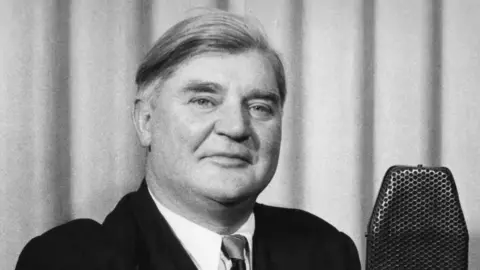
"It's clear the demand on the service is unsustainable," Ms Morgan said.
"We have an aging population. We have a population where 60% of the population are overweight or obese which leads to more complications in older age.
"Shifting resources out of hospitals and into communities is fundamental."
Is a free NHS the best option?
"This is a system that I think the Welsh public are very wedded to," Ms Morgan said.
"They want it to remain free at the point of need. They certainly want good outcomes.
"If we do carry on with this system, they do need to take more responsibility for their own health."
She said the government cannot "do it entirely" but has a responsibility to "stand with them" on this issue.
Ms Morgan added: "To change the environment, for example, so they don't see fast food outlets on every corner.
"This is not just about health. This is about housing, poverty, about education.
"All of these things we have to address at the same time."
Why are operation waiting times rising again?
"Some of that was because of industrial action, some of it was because we've had bank holidays," Ms Morgan said.
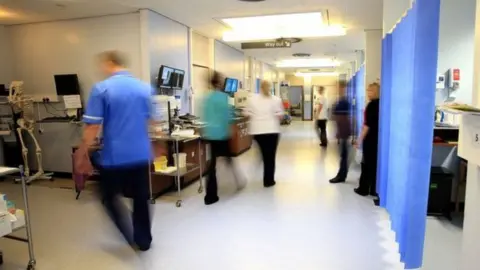 PA
PA"I'm hoping we'll be able to get back on to a trajectory.
"Our waiting lists as a whole have been coming down quite dramatically."
Why are so many people waiting for so long?
Ms Morgan said: "It does break my heart when I hear those stories and we are particularly challenged when it comes to orthopaedic surgeries.
"It was a problem that existed pre-pandemic and of course what happened during the pandemic was a lot of those were paused.
"What we have is urgent cases taking priority over those longer waits."
She said some decisions are clinical adding: "Which is the most urgent case? This is something very difficult for me to intervene with as a minister. I do have to take their clinical judgements into consideration."
With almost 5,000 vacancies, what is being done to address staffing issues?
"We're investing more in staffing than we ever have before," Ms Morgan said.
"We now employ 106,000 people in the NHS.
"Across the globe, the World Health Organization have said there will be 10 million people in terms of shortages across the world by 2030, so we are in a difficult market here where everybody is chasing after the same workers."
Is an end to the nurses' strikes in sight?
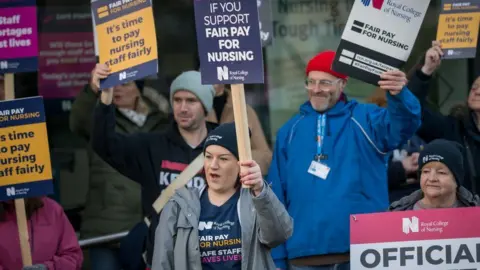 Getty Images
Getty ImagesMs Morgan said: "We are now in the non-pay areas of the negotiations for the agenda for change.
"We're confident that those negotiations will come to a conclusion very soon and the fact they have suspended action is very positive and hopefully that will get us back on track also in terms of getting those waiting lists down."
How do we support an ageing population?
Ms Morgan said: "We need to have a preventative system. We know that for people who are old, for example, it's not ideal for them to go into hospital. So let's provide that support for them in their community.
"If people do go to hospitals, the hospitals are likely to become much more specialist centres.
"People may have to travel further for that support, but also we will have to ask the public to come with us on this journey."
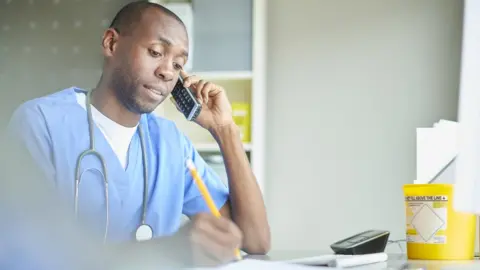 Getty Images
Getty ImagesMs Morgan said if the current system is to continue, people will have to "do more to help themselves".
"For example people with type 2 diabetes, people with respiratory problems will have to do a lot more self management. We can do that now in a digital age, we can ask people to use apps," she said.
"There will be a shift using technology."
What do opposition parties say?
Welsh Conservatives:
"Health has been devolved to Wales for 25 years in Wales which is under the Labour government in Cardiff," said social services spokesperson Gareth Davies.
"Waiting times have increased year-on-year.
"It's not just pay, it's also feeling valued in roles also and feeling like there's career pathways and career progression if professionals so desire."
Plaid Cymru:
"We need staff and resources. We've got to realise that the NHS is nothing without its staff," said health spokesman Mabon ap Gwynfor.
"We need to not only recruit more but retain who we have. In order to do that we need to ensure the NHS is fit for the 21st century.
"There's no flexible working hours for nurses, they had to fight for their pay and improved working conditions."
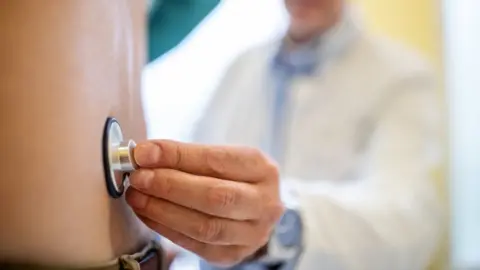 Getty Images
Getty ImagesHe said ways need to be found to bring in money to pay NHS staff, and asking people to take personal responsibility for their health is "a difficult one".
"It's also very patronising. If you are someone from a poor background with low income, it's very, very difficult for you to make those life choices," he said.
"To improve your diet for instance. It's difficult for you to go out and exercise when you have work all the hours that you have to bring income, money in to put food on the table.
"We also need to look at the wider issues around poverty, around ensuring people have everything they need to lead a dignified life."
